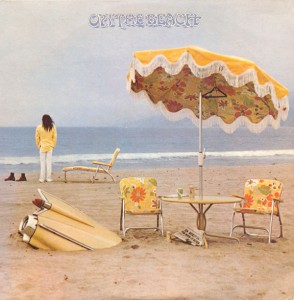
Review by Francelino Prazeres de Azevedo Filho
Assigned by Victor Ferreira Guimarães
Why do people in this game keep assigning me instrumental mild-mannered electric folk-jazz? I don’t like this type of music, never did! Go figure. After reviewing Akelarre, in which American soulsman William S. Fischer travelled to the Basque Country to mix Basque folk melodies to modern genres, I now get to review Masterless Samurai, whose author, Osamu Kitajima, did the opposite. Born in Japan, he travelled, first to the UK, then to Los Angeles, to absorb Western influences and make fusion of his traditional Japanese music to prog and jazz. And it’s uncanny not only how those two albums resemble each other, but also in how they make me feel.
Consisting of 10 instrumental pieces, with most being less than 5 minutes long, and the longest one not even reaching 7 minutes, one would imagine they didn’t overstay their welcome. Sadly, this isn’t the case. The main problem is that the songs lack both dynamism and emotion. No song builds to anything, there’s no big changes or progression, they end the way they started, so there’s no tension, nothing to surprise the listener. And, mood-wise, everything just goes for “well-played background”.
Texture-wise, there is much less of those marvellous Japanese woodwinds than there could have been, which is a pity. My favourite song here, “Sei”, is precisely the one that explores them the most. It is also one of the few songs that goes for a mood (relaxing), rather than being just noise. The awful bossa-nova-ish “Floating Garden” is the worst of the bunch. Japanese strings are also present in many tracks, but again in a not very prominent position. The rhythm section is very technically proficient, but they are just there, making noise but not making sound. I really think this album could have used more minimalist percussion to great effect. The same could be said for all the guitars, synths and electric pianos present in all tracks. All songs invariably have sections with all those instruments, with no variation in tone or texture. The way it is, everything feels too busy with no payoff, and too samey.
In the end, Masterless Samurai feels like something that was done for the sake of itself. A mixture that was focused more on the ingredients that had to be put in the pot, rather than the taste of the stew.


 Assigned by: Diabli Ben
Assigned by: Diabli Ben






